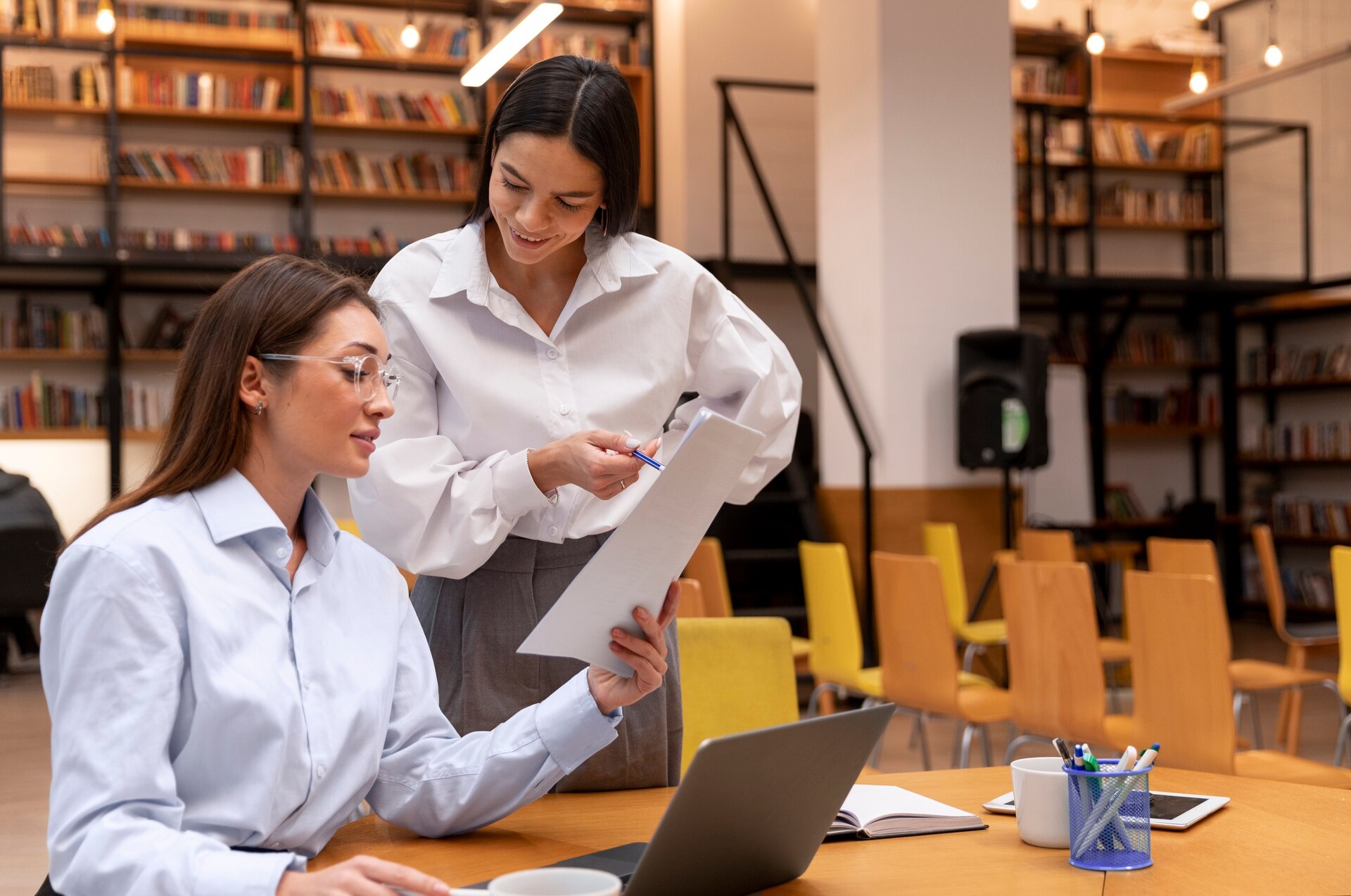Discover the Power of Mediated Learning Experience: Definitions, Techniques, and Benefits
Are you curious about the concept of the mediated learning experience? Look no further! In this article, we will delve into the definitions, techniques, and benefits of this educational approach. Whether you’re a teacher, student, or simply interested in the field of education, we have the resources you need. Discover the power of mediated learning experience and gain a deeper understanding of its applications in various educational settings. From research studies to training programs, we have you covered. So, let’s dive in and explore the world of mediated learning experiences together!
Unleashing the Potential: 5 Keys to Discover the Power of Mediated Learning Experience
Unleashing the potential of students through a Mediated Learning Experience is a transformative approach to education. By actively engaging learners in the process, this method empowers them to take ownership of their learning journey.

Key 1: Building Strong Relationships
Creating a supportive and nurturing environment is essential for a successful Mediated Learning Experience. By fostering positive relationships between educators, students, and parents, a strong foundation is established for effective learning.
Key 2: Cultivating Curiosity
Encouraging curiosity and a thirst for knowledge is crucial in a Mediated Learning Experience. By sparking students’ interest and encouraging them to ask questions, educators can ignite a passion for learning that will drive their educational journey.
Key 3: Developing Critical Thinking Skills
In a Mediated Learning Experience, students are encouraged to think critically and analyze information. By developing these skills, learners become active participants in their own learning process, enabling them to navigate complex challenges with confidence.
Key 4: Promoting Collaboration
Collaboration is a key component of a Mediated Learning Experience. By fostering teamwork and cooperation, students learn to value diverse perspectives and work together towards common goals.
Key 5: Providing Meaningful Feedback
Meaningful feedback is essential in a Mediated Learning Experience. By providing constructive feedback that focuses on growth and improvement, educators can guide students toward achieving their full potential.
Exploring Mediated Learning Experience: 10 Simple Methods for Success
Unleashing the potential of mediated learning experience requires a deep understanding of its core principles. In this section, we will explore 10 simple methods that can lead to success in implementing this approach.
1. Creating a Supportive Environment
By fostering a positive and inclusive atmosphere, learners feel safe to take risks and engage in meaningful interactions.
2. Encouraging Active Participation
Engaging learners in hands-on activities and discussions promotes active learning and enhances their understanding of concepts.
3. Providing Scaffolding
Offering support and guidance at the right level helps learners build upon their existing knowledge and skills.
4. Promoting Metacognition
Encouraging learners to reflect on their thinking processes and strategies enhances their ability to monitor and regulate their own learning.
5. Incorporating Technology
Integrating technology tools and resources can enhance the mediated learning experience by providing interactive and engaging learning opportunities.
6. Fostering Collaboration
Promoting collaborative learning experiences allows learners to benefit from diverse perspectives and develop important social skills.
7. Providing Feedback
Offering timely and constructive feedback helps learners understand their strengths and areas for improvement, fostering continuous growth.
8. Differentiating Instruction
Adapting instruction to meet the individual needs and abilities of learners ensures that everyone can fully engage in the mediated learning experience.
9. Cultivating Curiosity
Nurturing learners’ natural curiosity and encouraging them to ask questions fosters a love for learning and promotes deeper understanding.
10. Reflecting and Adjusting
Regularly reflecting on the effectiveness of the mediated learning experience and making necessary adjustments ensures continuous improvement and success.
Mastering Mediated Learning Experience: 5 Steps to Effective Implementation
Step 1: Understanding the Core Principles
To master the mediated learning experience, it is crucial to grasp the core principles that underpin this approach. By understanding the importance of active engagement, scaffolding, and metacognition, educators can effectively implement mediated learning strategies in the classroom.
Step 2: Creating a Supportive Environment
Creating a supportive environment is essential for successful implementation of mediated learning experience. This involves fostering a positive and inclusive classroom culture, providing clear expectations, and promoting collaboration among students.
Step 3: Assessing Individual Needs
To effectively implement mediated learning experience, it is important to assess the individual needs of each student. This involves identifying their strengths, weaknesses, and learning styles, and tailoring instruction accordingly.
Step 4: Designing Engaging Activities
Engaging activities are key to implementing mediated learning experience. By designing activities that are relevant, challenging, and promote critical thinking, educators can enhance student engagement and facilitate meaningful learning experiences.
Step 5: Reflecting and Adjusting
Reflection and adjustment are crucial steps in mastering mediated learning experience. By regularly reflecting on the effectiveness of instructional strategies and making necessary adjustments, educators can continuously improve their implementation of mediated learning experience.
Empowering Education: Unlocking the Benefits of Mediated Learning Experience
Empowering Education: Unlocking the Benefits of Mediated Learning Experience is a comprehensive guide that delves into the transformative power of mediated learning experience (MLE) in the field of education. This groundbreaking approach to teaching and learning has the potential to revolutionize traditional educational practices and unlock the full potential of students.
Unleashing the Power of MLE
In this section, we explore the five keys to unlocking the power of MLE. These keys provide educators with practical strategies to create a dynamic and engaging learning environment that fosters critical thinking, problem-solving, and creativity.
Transforming Education with MLE
Discover the ten simple methods for implementing MLE in the classroom. These methods are designed to empower educators to effectively integrate MLE into their teaching practices, resulting in improved student outcomes and a more enriching educational experience.
With the guidance and insights provided in Empowering Education: Unlocking the Benefits of Mediated Learning Experience, educators can take their teaching to new heights and empower their students to reach their full potential.
Dive into Mediated Learning Experience: Discover the 5 Keys to Success
Unleashing the potential of mediated learning experience is crucial for effective education. To truly explore this concept, it is important to understand the 5 keys that lead to success.
Key 1: Active Engagement
Active engagement is the foundation of mediated learning experience. By actively participating in the learning process, students can develop critical thinking skills and enhance their overall understanding.
Key 2: Collaborative Learning
Collaborative learning plays a vital role in mediated learning experience. By working together, students can exchange ideas, challenge each other’s thinking, and deepen their knowledge.
Key 3: Scaffolding
Scaffolding is a key strategy in mediated learning experience. It involves providing support and guidance to students as they tackle challenging tasks, helping them to gradually build their skills and confidence.
Key 4: Reflection
Reflection is an essential component of mediated learning experience. By reflecting on their learning experiences, students can gain insights, identify areas for improvement, and make connections to real-life situations.
Key 5: Metacognition
Metacognition, or thinking about thinking, is a powerful tool in mediated learning experience. By being aware of their own thinking processes, students can become more strategic learners and take control of their own learning journey.
Enhancing Learning: 10 Simple Methods for Implementing Mediated Learning Experience
1. Establish Clear Goals
Before implementing mediated learning experience, it is important to set clear goals and objectives. This will help ensure that the learning experience is tailored to the needs of the learners and that the desired outcomes are achieved.
2. Utilize Technology
Technology can be used to facilitate mediated learning experiences. This includes using online platforms, virtual classrooms, and other digital tools to create engaging and interactive learning experiences.
3. Create Engaging Content
Creating engaging content is essential for successful mediated learning experiences. This includes using visuals, audio, and other multimedia elements to make the content more engaging and interactive.
4. Foster Collaboration
Collaboration is an important part of mediated learning experiences. This includes encouraging learners to work together to solve problems, share ideas, and discuss topics.
5. Provide Feedback
Providing feedback is essential for successful mediated learning experiences. This includes providing timely and constructive feedback to learners to help them understand their progress and identify areas for improvement.
6. Monitor Progress
Monitoring progress is important for successful mediated learning experiences. This includes tracking learners’ progress and providing feedback to help them stay on track and reach their goals.
7. Encourage Reflection
Encouraging learners to reflect on their learning experiences is essential for successful mediated learning experiences. This includes providing opportunities for learners to reflect on their experiences and discuss their progress.
8. Utilize Assessment
Assessment is an important part of mediated learning experiences. This includes using assessments to measure learners’ progress and identify areas for improvement.
9. Promote Engagement
Promoting engagement is essential for successful mediated learning experiences. This includes providing opportunities for learners to interact with each other and the content, as well as encouraging them to ask questions and participate in discussions.
10. Evaluate Results
Evaluating the results of mediated learning experiences is important for understanding the effectiveness of the
From Theory to Practice: 5 Steps to Implement Mediated Learning Experience
Unleashing the potential of mediated learning experience is crucial for effective education. To achieve success, it is important to explore and master this method. Implementing mediated learning experience can empower education and unlock its benefits.
To dive into this approach, follow these five key steps. First, understand the theory behind mediated learning experience. Next, create a supportive environment that encourages active learning. Then, identify and address individual learning needs. Additionally, provide scaffolding and guidance to enhance learning outcomes. Finally, continuously evaluate and adapt the implementation process for optimal results.
By following these steps, educators can bridge the gap between theory and practice, ensuring that mediated learning experience becomes an integral part of effective education.

